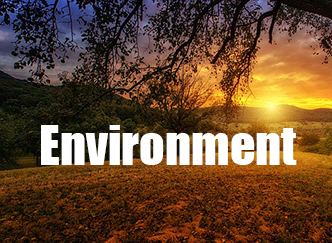By Winona LaDuke
August was marked by three new landmarks in Native resistance to pipelines in Canada, Minnesota, and North Dakota. On August 29, 26 people were cited in downtown Bemidji, Minn. after stopping traffic for four hours. Ojibwe women from Red Lake, Leech Lake and White Earth were joined by the Board Chair of the Sierra Club and a number of church leaders from around the state. Doug Rasch, a landowner in Clearwater County who faces eminent domain of his land by Enbridge, was also there and was charged with disorderly conduct.
Mary Jourdain spoke about Missing and Murdered women and children. She is the mother of Jeremy Jourdain who has been missing for three years. Pointing to the “man camps” she expressed deep concerns about the future. Others talked about the need to protect Minnesotans, not Canadian corporations, in the first new set of citations, signaling what will likely be a brutal winter in Minnesota if Enbridge is allowed to move forward.
Part of the concern is that Enbridge has agreed to pay for the costs of militarizing northern Minnesota. On June 28, when the Minnesota Public Utilities Commission (PUC) approved the permits for Line 3, they added a condition requiring Enbridge to cover all the costs of responding to protests during construction. Enbridge happily agreed. This means that once the permit is finalized and issued (perhaps in September), Minnesota law enforcement will have a bottomless tab open with a Canadian multinational corporation to cover any costs related to quelling resistance to the pipeline.
Information received through Data Practices Act requests from the Minnesota Bureau of Criminal Apprehension indicates that the Beltrami County Sheriff’s Department is the agency coordinating efforts by Enbridge and at least eight law enforcement agencies, from all levels of jurisdiction, to share information about water protectors. Beltrami County Sheriff, Bemidji Police and Minnesota State Patrol were all present for the Bemidji vigil. At the White Earth Tribal Council meeting on August 26, the Council discussed recusing tribal law enforcement from arresting any tribal citizens (aka Water Protectors) protecting the water and urged other bands to do the same.
On August 30, the Canadian Federal Court of Appeals ruled that the government’s review of the controversial Trans Mountain Pipeline, a project of Kinder Morgan, did not adequately consult with First Nations before greenlighting the project. The ruling comes after ongoing opposition to the project, with hundreds of arrests. The Tsleil-Waututh, Squamish, and Musqueam First Nations, who fought the project in the Court system and committed to fight the pipeline – have said they never consented to the pipeline passing through their lands and waterways.
The ruling puts to a screeching halt the Trans Mountain Project, originally proposed by Kinder Morgan. According to Canada’s Financial Post, “The decision means the National Energy Board will have to redo its review of Kinder Morgan Canada’s project. In a written decision, the court says the energy board’s review was so flawed that the federal government could not rely on it as a basis for its decision to approve the expansion.
The court also concluded that the federal government failed in its duty to engage in meaningful consultations with First Nations before giving the green light to the project. That decision means the government will have to redo part of its consultations with Indigenous groups,” the Financial Post reports. “This is the consequence of the unholy alliance between the federal government and corporations taking shortcuts through consultation,” declared Grand Chief Stewart Phillip.
Hopes are high for many in this case. “This is a great victory for Indigenous communities everywhere fighting against destructive projects being imposed upon their territories,” said Patrick McCully, climate and energy program director at Rainforest Action Network, after the ruling. “It signals that governments, corporations, and funders must all respect Indigenous Peoples’ right to Free, Prior, and Informed Consent.”
It seems that Kinder Morgan had stopped construction on the project this summer, based on the huge opposition and many arrests. In June, amidst deep criticism, Prime Minister Justin Trudeau purchased the pipeline from Texas based Kinder Morgan. Although the ink had not yet sealed the deal, company shareholders officially approved the sale barely an hour after the Federal Court of Appeals ruling was made public.
“The Liberal government has bought a $7.4 billion (and rising) pipeline expansion project that will now be forced into years of further review and delay,” said Andrea Harden-Donahue, energy and climate justice campaigner with the Council of Canadians. “It is time for real political leadership that truly respects Indigenous rights, does not bow to the interests of Big Oil, and prioritizes all of our interests in setting us on a path to a sustainable economy and environment…”
The project’s delay will undoubtedly be expensive for the Canadian government, desperately searching for a way to get tar sands oil to Chinese markets. In the meantime, it’s clear that Free, Prior and Informed Consent, let alone consultation, was not undertaken.
Back in Minnesota, questions about consultation and consent remain on the Enbridge Line 3 pipeline. Appeals to the Environmental Impact Statement (EIS) were filed in August by White Earth, Leech Lake, Fond du Lac and Mille Lacs (Ojibwe bands), as well as Honor the Earth and Friends of the Headwaters.
Since the PUC forced the Fond du Lac Tribe to make a decision on the new route, it’s been clear that consultation with a tribal government is a sham. Free, Prior and Informed Consent is the international standard, according to the UNDRIP (Declaration on the Rights of Indigenous Peoples) and Minnesota certainly has done none of that. In Minnesota, after years of hearings, every agency recommending against issuing permits for the pipeline, and every tribe expressing clear opposition, it is clear that the system has not yet worked. “We are waiting for the system to work here,” Dawn Goodwin of Rice Lake said. “Our treaties must be respected, our rice must be respected.”
Finally, in court cases which continue from the Dakota Access militarization; Chase Iron Eyes reached a plea bargain agreement in the Last Child Camp. Felony charges, after a long push to have more evidence released by the state, and the use of the “necessity defense” arguing that the crime he committed was necessary to prevent a larger crime. Iron Eyes was charged with a felony for inciting a riot and misdemeanor criminal trespass related to protest activities. Under conditions of the plea agreement, prosecutors have moved to amend felony inciting a riot to misdemeanor disorderly conduct, as well as dismiss misdemeanor criminal trespass.
As the legal process moves forward in Canada, North Dakota and Minnesota, it is not clear what the outcome will be either for corporations or Natives. What is clear is that it will be costly both to Minnesotans if Line 3 proceeds; and if the Trans Mountain legal decision is an indicator, it will be very costly to Enbridge, as the Anishinaabe stand their ground in the courts and on the streets.







